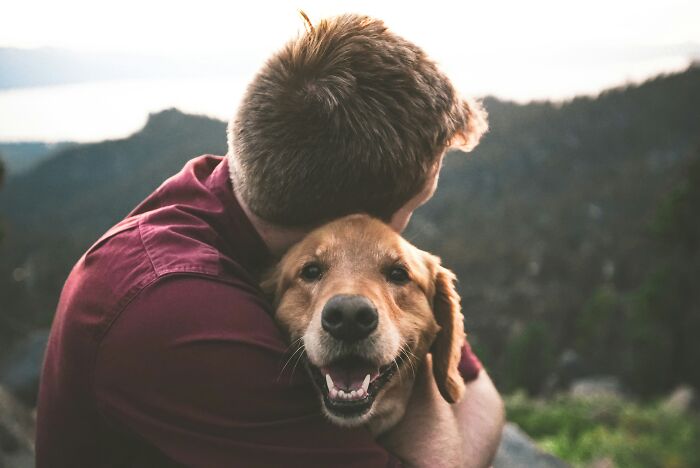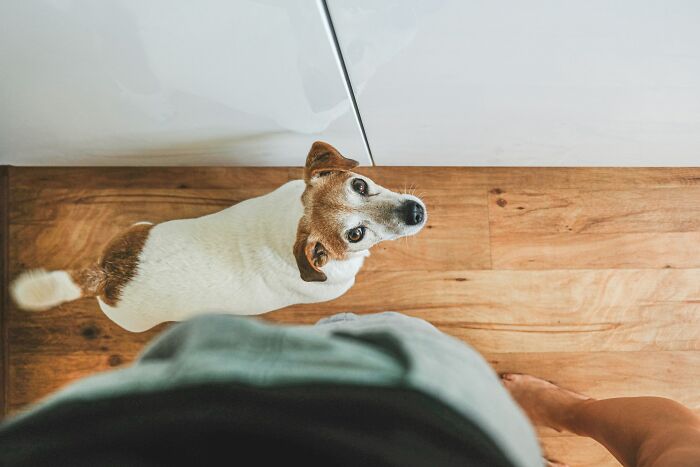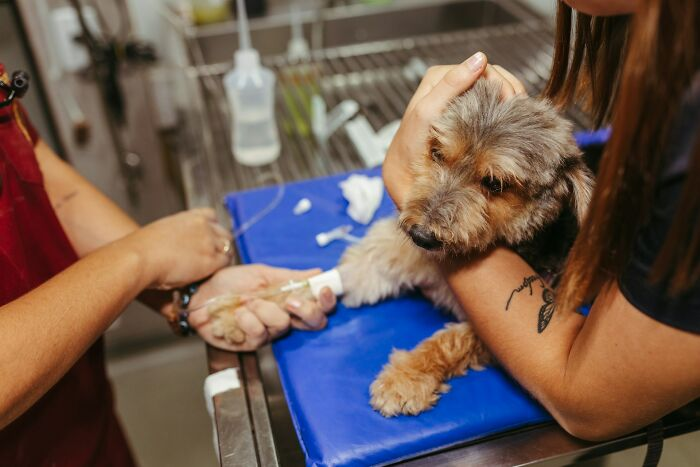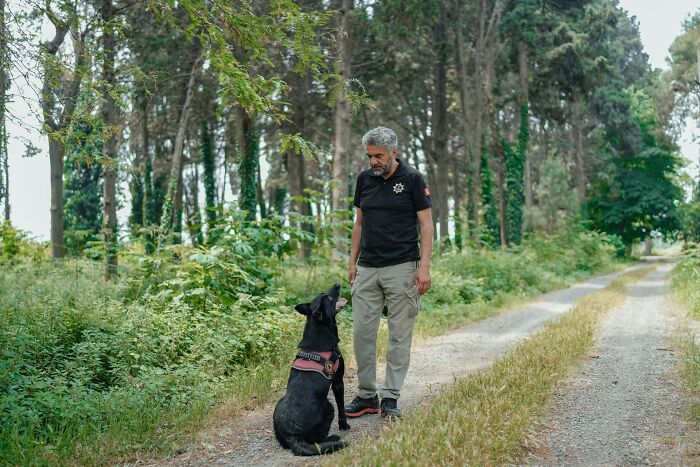Dog Owners Get Brutally Honest About the Real Downsides of Having a Pet
Getting a dog is one of those life decisions that feels overwhelmingly positive. You picture long walks in the park and a loyal companion waiting for you when you walk in through the door. And to be fair, all of that is true.
Dogs bring love, laughter, and companionship in ways that few other things can. But what people don't always talk about is the other side of pet ownership, the part that's less Instagram-worthy and more grounded in reality.
Owning a dog is a serious commitment. It's not just about feeding them and taking them for the occasional stroll. You may have to restructure your entire life around another living being who depends on you for everything.
Your schedule changes. Your budget shifts. Your ability to be spontaneous basically disappears. Suddenly, you can't just decide to stay out late or take a last-minute weekend trip without considering who's going to look after your furry friend.
Recently, a discussion on AskReddit asked dog owners to share the real downsides of having a pet, and the responses were refreshingly honest.
For the record, these aren't people who regret getting their dogs or who don't love them deeply. They're just willing to acknowledge that life with a pet isn't always easy.
From the financial burden of vet bills to the emotional weight of saying goodbye, these owners got real about what it actually means to share your life with a dog.
Scroll down to see what dog owners wish someone had told them before they brought their furry companion home.
1. The constant barking makes having a “quiet” day very difficult and could even disturb your neighbors who aren’t dog owners.

2. All your plans must be made around the dog.

3. Dogs have short lives compared to humans, and the hole they leave behind can remain for years.

The Reality of Time Commitment
Dr. John Bradshaw, a renowned pet psychologist, emphasizes that dogs require significant time and attention, which can be overwhelming for busy owners. He notes that many prospective dog owners underestimate the daily commitment involved, including exercise, training, and socialization.
This lack of understanding can lead to frustration and behavior issues in pets. According to Dr. Bradshaw, allocating specific times for walks and play can significantly improve the relationship between owner and dog, fostering a more harmonious living environment.
The Hidden Costs of Pet Ownership
While dogs bring joy, they also come with hidden costs that many owners overlook. A study by the American Humane Society emphasizes that the financial burden of dog ownership can be substantial. This includes food, grooming, veterinary bills, and emergency care.
Experts recommend budgeting for these expenses upfront to avoid unexpected financial strain. According to Dr. Michael Greger, a nutritionist, investing in preventive healthcare and a balanced diet for pets can ultimately save money in the long run.
Finally, the emotional toll of losing a pet is often underestimated. Dr. Ramani Durvasula, a clinical psychologist, explains that grief can be overwhelming, yet it's a natural part of the pet ownership journey.
She recommends practicing self-care and seeking support from friends or pet loss support groups. Understanding that grief is a personal process can help owners navigate this difficult time more effectively.
4. Getting out of bed at odd hours to walk your dog could be your reality, as it’s more common than you think.

5. Your entire house and furniture may pick up a bad smell due to their drool, pee, poop, and fur.

6. Your home could become a no-go area for friends, family, and even a partner who is either allergic to dogs (fur) or doesn’t like dogs (pets).

Experts emphasize the often-overlooked financial implications of dog ownership. David Bach, a financial author and expert, notes, "The costs of food, grooming, and veterinary care can accumulate rapidly, leading to unexpected financial strain." He advises prospective dog owners to "create a comprehensive budget that includes these expenses before bringing a dog home." This proactive strategy not only ensures that you can afford your pet but also contributes to a stable and happy household.
Pet ownership can significantly impact mental health, both positively and negatively. According to Dr. Kelly McGonigal, a health psychologist, while dogs can provide companionship and reduce feelings of loneliness, they can also introduce stress, particularly during training or behavioral issues.
She suggests that understanding the emotional landscape of pet ownership is crucial. Engaging in community support groups for dog owners can help mitigate stress by allowing for shared experiences and solutions.
7. They can be overly clingy, even when you need some hours to yourself to handle personal activities.

8. Rain, snow, fever, or date night… when they want to pee or poop, you have no choice but to attend to them.

9. They are high maintenance; vet bills and feeding can get really expensive.

Behavioral Challenges
Dr. Patricia McConnell, an animal behaviorist, explains that behavioral issues often stem from a lack of proper training and socialization. She notes that many owners overlook the importance of early training, which can lead to problems like excessive barking or destructive behavior.
Investing time in professional training classes can provide essential skills for both the dog and owner. According to Dr. McConnell, consistent training not only reinforces good behavior but also strengthens the bond between pet and owner, making for a happier home.
The Time Commitment
One of the most significant downsides of dog ownership is the time commitment required for training and daily care. According to the American Kennel Club, puppies need consistent training and socialization, which can take several hours each week.
Dr. Tina Payne Bryson, a child development expert, suggests establishing a structured daily routine that includes designated play and training times. This not only helps the dog but also fosters a stronger bond between pet and owner.
10. There’s a risk of getting a dog with behavioral issues like separation anxiety or aggression, which could affect your life.

11. Watching them age and develop different illnesses, especially dementia.

12. You can’t make spontaneous plans because you have to carefully arrange for who will cater to them when you’re away.

Veterinarian Dr. Julie Buzby emphasizes the importance of regular veterinary check-ups, which can prevent health issues that may arise from neglect. Many pet owners underestimate how crucial these visits are, resulting in preventable diseases.
Dr. Buzby recommends a health plan that includes preventive care and vaccinations. This approach not only helps maintain your dog's health but can save money in the long run by avoiding costly emergency treatments.
Many dog owners experience lifestyle changes that can be challenging. For instance, travel becomes complicated when you have a pet. Dr. Penelope Leach, a child psychologist, notes that planning for pet care during vacations or outings can lead to anxiety about leaving them behind.
She advises creating a network of trusted pet sitters or considering dog-friendly travel options. This not only alleviates owner anxiety but ensures that the pet's needs are met consistently.
13. Putting them down when they get terminally sick.

14. They require constant supervision and are very dependent on you, like babies, even in adulthood.

15. Behind every well-behaved dog is a tired, selfless, dedicated owner.

Socialization Needs
According to Dr. Ian Dunbar, a leading dog trainer, socialization is crucial for a dog's development. He explains that many owners fail to expose their dogs to a variety of environments, people, and other animals during their formative months. This lack of exposure can lead to anxiety and aggression later in life.
Dr. Dunbar advocates for puppy socialization classes, which offer safe spaces for young dogs to explore and interact. This proactive measure not only benefits the dog but also fosters a well-adjusted pet and a more enjoyable ownership experience.
Behavioral Challenges
Behavioral issues can arise in dogs, leading to frustration for owners. Dr. Ian Kerner, a sex therapist and relationship expert, points out that understanding canine behavior often requires knowledge beyond simple obedience training.
He recommends consulting with professional trainers or canine behaviorists. This proactive approach can help identify underlying issues and promote a more harmonious living environment, ultimately reducing stress for both pet and owner.
16. Fur everywhere in your home.

17. The constant anxiety of worrying about their well-being when you’re away for a couple of days.

18. Most dogs need regular outdoor walks or playtime to expend their energy, which may contradict your lifestyle.

Pet ownership can also impact mental health significantly. A study by the American Psychological Association indicates that pet owners often experience lower stress levels and improved mood. However, the responsibilities of ownership can lead to increased anxiety if not managed well.
Dr. Shawn Achor, a happiness researcher, suggests utilizing pets as part of a broader self-care strategy. Incorporating regular playtime and walks can enhance both the owner's and the pet's well-being, creating a positive feedback loop.
Physical activity is another essential aspect of dog ownership that can sometimes be overlooked. Dogs require daily exercise, which can be challenging for busy owners. Dr. Angela Duckworth, a character researcher, emphasizes that establishing a daily walking routine can enhance both the owner's and the dog's physical health.
She suggests setting realistic goals, such as short walks several times a day, to make it more manageable. This not only benefits the dog but can improve the owner's physical fitness as well.
19. They can cause accidents all over the house and may also destroy valuable property.

20. Some dogs tend to be very territorial and aggressive towards other dogs, which puts you at risk of legal trouble if they attack.

21. Cleaning up several times a day after they poop or pee can be really frustrating, especially when done indoors.

The Importance of Preparation
Dr. Marty Becker, a veterinarian known as 'America's Veterinarian', emphasizes the need for thorough preparation before adopting a dog. He notes that many new pet owners fail to research the breed's specific needs, leading to mismatched expectations.
Dr. Becker advises potential owners to consider their lifestyle and choose a breed that fits their daily routine. This thoughtful selection process can minimize future challenges and enhance the overall joy of pet ownership.
Managing Expectations
Setting realistic expectations is vital for new dog owners. Dogs, like people, have personalities and may not always behave as anticipated. Maya Angelou, a renowned poet, reminds us that understanding and patience are essential elements in caring for any living being.
Experts suggest that prospective dog owners spend time researching breeds and temperaments to find a match that fits their lifestyle. This foresight can lead to a more satisfying pet ownership experience.
There you have it. Twenty-one dog owners getting refreshingly real about what life with a pet actually looks like.
Loving your dog doesn't mean pretending everything is perfect, and being honest about the challenges doesn't make you any less devoted.
Dogs bring joy and countless unforgettable moments, but they also come with sacrifices that nobody really prepares you for.
What's been the biggest challenge of dog ownership for you? Share your thoughts in the comments below.
Understanding the Deeper Patterns
In conclusion, while dog ownership brings immense joy and companionship, it's crucial to acknowledge the responsibilities and challenges that come with it. By educating themselves and seeking expert advice, potential dog owners can prepare for the realities of pet ownership.
Implementing practical strategies, such as budgeting for expenses, developing a structured routine, and understanding the emotional aspects of ownership, can lead to a fulfilling experience. A well-prepared owner is better equipped to embrace the joys of having a furry friend while managing the complexities that inevitably arise.
Solutions & Coping Strategies
Owning a dog can be a fulfilling experience, yet it comes with its share of challenges that require commitment and preparation. Understanding the responsibilities involved—from time and financial costs to behavioral training—can drastically improve the ownership experience.
Experts like Dr. John Bradshaw and Dr. Patricia McConnell stress the importance of proactive measures such as budgeting and training. When approached thoughtfully, the joys of dog ownership can far outweigh the downsides, leading to a lasting and rewarding companionship.



